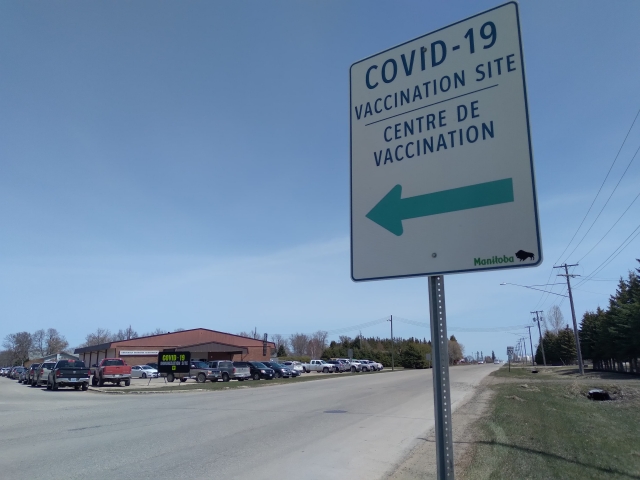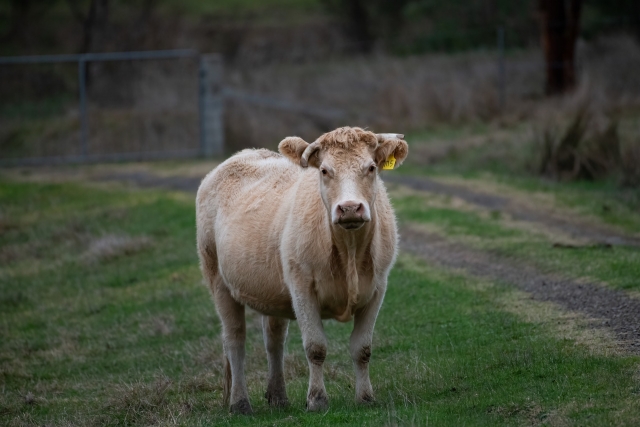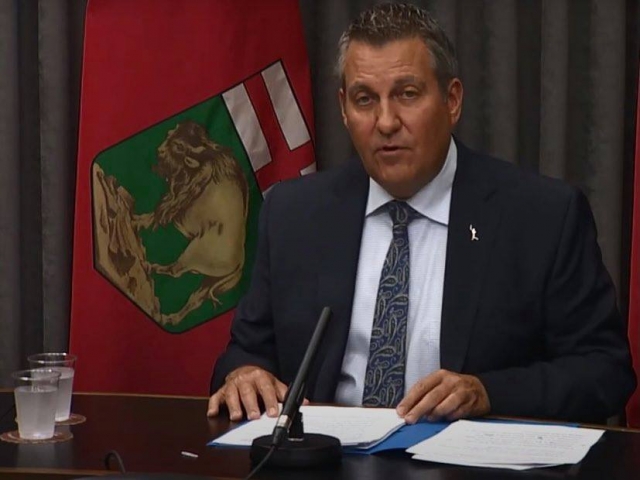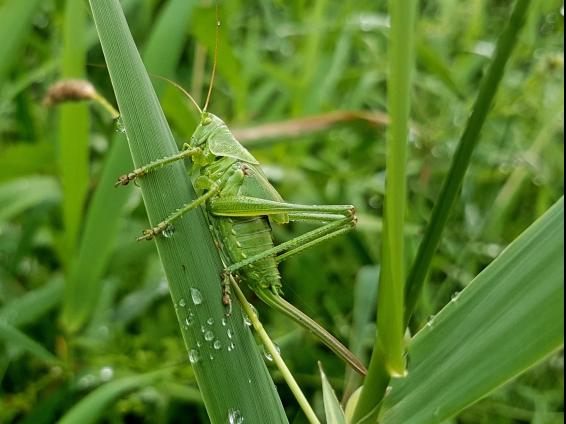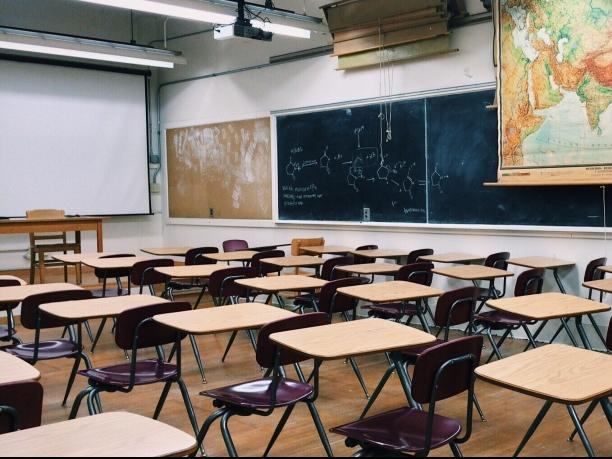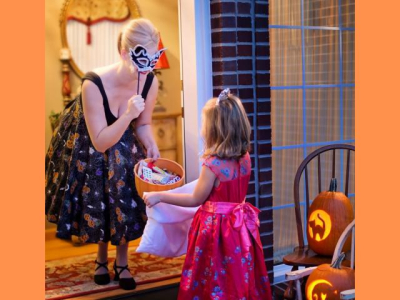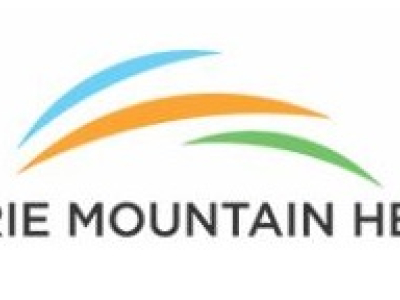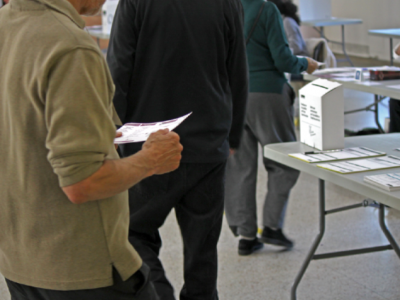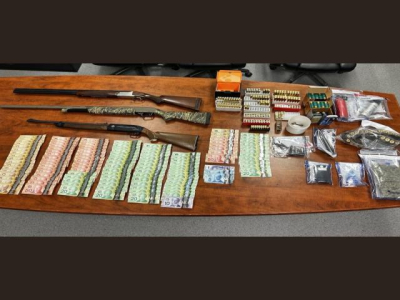 NewsNow
NewsNow
There will be walk-ins at Dauphin’s vaccine supersite next week.
On Monday Pfizer and Moderna Walk-ins are taking place from 4:30 p.m. to 7:30 p.m., and from 10:30 a.m. to 1:30 p.m. on Saturday the 14th.
The supersite is located at the Ukrainian Orthodox Hall at 304 Whitmore Avenue east.
- Details
- Contributed by Trillian Reynoldson
The Rural Art Mentorship Program application is now open for Indigenous artists.
In partnership with Mentoring Artists for Women's Art, the Rural Art Mentorship Program is a 10-month online program that will pair five emerging northern and rural artists with Lita Fontaine, a professional artist, and mentor.
Lita Fontaine is a mixed-media artist of Dakota, Anishinaabe, and Métis descent with roots in Long Plain and Sagkeeng First Nations. She holds a Master of Fine Arts from the University of Regina and has exhibited her textile works, paintings, and photographs in solo and group shows nationally.
Fontaine says it’s important to share knowledge.
“I carry some knowledge in regards to making art, so I think some of my responsibility as an Indigenous woman is to share that knowledge with other First Nations people, and that’s my everyday job.”
Fontaine says making art is a way to be productive, learn, and understand more about yourself, your community, and culture.
“Connecting with our people, our culture, making art together, healing together, and understanding each other. It’s actually a good approach for reconciliation as well. So that’s the way I’m looking at it.”
Fontaine hopes to cover a lot of ground in the 10-month program.
"I'm hoping to have the students understand the process of making a piece of art. There's also art literacy, I would like to share knowledge that with them. Also knowing what line is, what form is, what texture is, what colour is, sharing that knowledge that way I hope they can be better artists for carrying that knowledge."
Applications for the mentorship program are open, and those interested have until September 9th to apply.
- Details
- Contributed by Trillian Reynoldson
The Independent Investigation Unit of Manitoba (IIU) is investigating the death of a male that occurred in police presence in the Sandy Bay area.
- Details
The governments of Canada and Manitoba have agreed to increase the 2021 AgriStability interim benefit payment percentage from 50 percent to 75 percent for Manitoba producers.
Federal Minister of Agriculture and Agri-Food Marie-Claude Bibeau and Manitoba Agriculture and Resource Development Minister Ralph Eichler made the announcement today.
Bibeau says they’re working closely with provinces to get farm families the support they need.
“By unlocking more AgriStability funds through interim payments and invoking late participation, we can get more cash in hand for farmers who are making tough decisions in a difficult situation."
Eichler says he’s been working closely with Manitoba producer groups.
“We are looking for every way we can help in these challenging times. We have taken this additional step to provide our producers with support and this increase allows producers to access a larger portion of their final AgriStability benefit early.”
The interim benefit allows producers who are enrolled in AgriStability to access a portion of their benefit early, to help support losses and cover costs. With this increase, Manitoba producers can apply for an interim benefit to receive 75 percent of their estimated final 2021 benefit, before completing their program year.
- Details
- Contributed by Trillian Reynoldson
The NDP Opposition is calling on the province to support livestock producers facing drought-induced feed shortages.
NDP Agriculture Critic Diljeet Brar says producers need real support, with programs that actually help them to avoid financial disaster.
“A crisis like this deserves real action.”
Severe heat conditions, an extended drought, and a grasshopper infestation throughout the summer decimated feed supply for livestock. Many ranchers have had to auction off parts of their herd earlier than usual, many of them at a financial loss.
The Manitoba NDP says after consultations with cattle producers, they’ve identified a targeted support package that would help them mitigate financial losses and stabilize their business operations.
The NDP urged the PC Government to offer a zero percent interest lending program with a 15-year payback to help cattle producers continue to breed their herds and to ensure beef prices remain affordable for Manitoba families, work with the federal government to offer a Freight and Feed Assistance Program that would subsidize the cost of feed supplies, and to temporarily reduce lease payments for Crown lands by 50 percent.
- Details
- Contributed by Trillian Reynoldson
The Grandview Town-Wide Yard Sale is taking place tomorrow.
Those participating will have their sales identified with signs or balloons and are on the sale map that was distributed throughout Grandview and neighboring towns.
Grandview Rec Director, Jill Wiebe says the yard sale received a good response this year.
“This year I guess we’ve had some bad luck with not being able to have any yard sales, so now that everything is open we’ve had some good response. I think we have over 17 registered sites in town.”
Wiebe says the amount of participants has increased this year.
“In previous years we only have about a dozen, so this year we’re up a few.”
Wiebe hopes that people stay safe and mindful of COVID, but she wants people to have a good time.
- Details
- Contributed by Trillian Reynoldson
Manitoba Conservation has issued a boil advisory for the Ste. Rose public water system.
Test results of routine water samples taken on August 3rd, 2021, have shown the presence of coliform bacteria in the treated water supply at the Ste. Rose du Lac water system.
As a result, a boil water advisory has been issued to ensure public health protection.
Until further notice, all water used for consumption should be brought to a rolling boil for at least one minute before it is used for:
Drinking and ice-making
Preparing beverages, such as infant formula.
Preparing food, including washing fruits and vegetables.
Brushing teeth
Manitoba Conservation notes that it is unnecessary to boil tap water used for other household purposes like laundry or washing dishes.
Adults and older children that can avoid swallowing the water can wash, bathe or shower. Young children should be sponge bathed. If boiling is not practical, an alternate like bottled water should be used for consumption purposes.
- Details
- Contributed by Noah Fuchs
Education Minister Cliff Cullen and chief provincial public health officer Dr. Brent Roussin held a news conference Thursday afternoon regarding the Safe Return to School Plan for Kindergarten to Grade 12.
Cullen announced that students would return to classrooms on Sept. 7:
“We are pleased to have all students and staff returning to full-time in-class learning while continuing to follow recommended public health fundamentals. We know that students learn best in the classroom, and the return to school plan will help to ensure schools stay open and adjust with additional measures, as needed, to address changes in local community or school situations.”
Students and school staff will be expected to follow the COVID-safe basics, such as self-screening, hand hygiene and staying home when sick. Masks are recommended for all students, staff and visitors but not required.
Notifications of new COVID-19 cases in schools will continue, and the public dashboard will resume in September, said Dr. Brent Roussin.
“I support this reopening school plan. Studies show that children are less likely to transmit COVID-19 at home, in school or in community settings and at lower risk of severe illness from COVID-19. There are significant benefits to their learning and overall well-being from the in-person interaction and extracurricular activities they get at school. The strong determination of Manitobans has helped limit the spread of the virus. This has resulted in a reduction in overall case numbers, community transmission and test positivity rates. The strain on our health care system continues to decline as vaccination rates continue to increase.”
About two-thirds of those aged 12 to 17 have received at least one dose of the COVID-19 vaccine, and about 52 percent have received both doses.
Public health and education officials are planning to ensure young people can catch up on essential immunizations that have been delayed due to the pandemic, such as HPV, hepatitis B, meningococcal disease, and tetanus-diphtheria and pertussis. Details will be shared with parents, students and school communities as soon as possible.
Public health officials are also recommending changes to classroom sizes for child care facilities to increase from 30 to 48 children, plus staff. In addition, physical distancing within a classroom is no longer required.
Funds dedicated to helping and protecting students include:
$40 million for additional staffing, learning and technology, and health and safety.
$6 million for masks and personal protective equipment.
$5 million for the Kindergarten to Grade 8 Remote Learning Support Centre for immunocompromised students and $2 million in contingency funding.
- Details
- Contributed by Noah Fuchs
The province handed out 14 tickets to people and businesses who violated public health orders last week.
Of the tickets, nine $1,296 tickets were handed out to individuals for various public health order violations, while three $298 tickets were given to people who weren’t wearing masks in indoor public places.
Two restaurants also each received a $5,000 ticket for alleged health order violations.
Since April 2020, more than $2.8 million in fines have been issued.
- Details
Growers and producers have faced many difficulties this year, between pests and the extreme weather.
John Gavloski, Entomologist with Manitoba Agriculture and Resource Development says the biggest concern right now is grasshoppers.
“Populations are quite variable. There will be some areas and some fields where they’re really not an economical concern, but then there are other areas where they certainly are.”
Gavloski says grasshoppers have been on the rise in recent years, due to the dry and hot conditions.
“Of the roughly 85 species of grasshoppers in Manitoba, there’s four we consider pests, and those four species can lay a lot of eggs. In a hot year, they’re going to start laying their eggs a little earlier, and if we don’t get some cooler weather and frost at some point, they’ll just keep laying their eggs.”
Gavloski is preparing to do the 2021 grasshopper count this month.
“You can count either the adults or the eggs. Counting the eggs requires sifting soil. It takes a long time and there’s a lot of work involved. The easier approach is to go out in August and do counts of adult grasshoppers around the edges of the field. We usually try to target around 100 to 150 sites in the province. It’s just a matter of doing an estimate of grasshoppers along the field edge.”
The data from the estimations gets mapped so they can make a forecast for the next season.
Gavloski says that flea beetles have also been an issue across the province, and there has been some spider mite activity in soybeans.
- Details
- Contributed by Trillian Reynoldson
Education Minister Cliff Cullen and chief provincial public health officer Dr. Brent Roussin are holding a press conference this afternoon, regarding the Safe Return to School Plan.
Roussin recently said the goal is to have school return to normal as much as possible for students this fall.
In May, Cullen announced $58 million in funding to help schools cope with COVID-19 in the upcoming school year.
The conference is taking place at 2:30 p.m., and CKDM will provide more information as it comes.
- Details
- Contributed by Trillian Reynoldson

